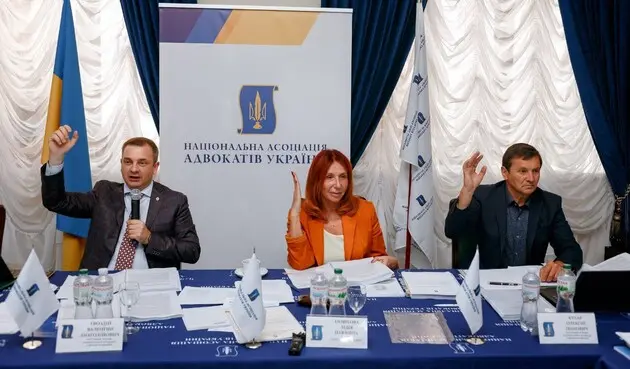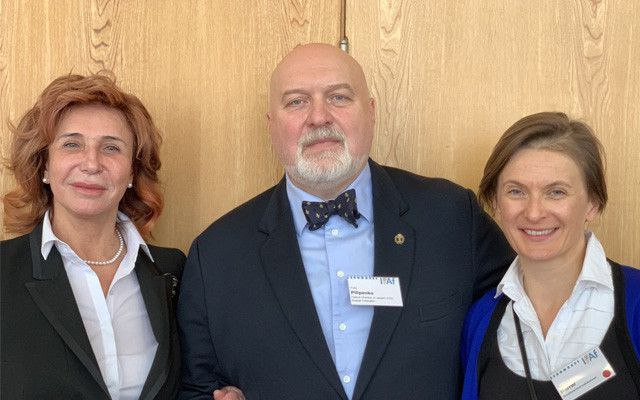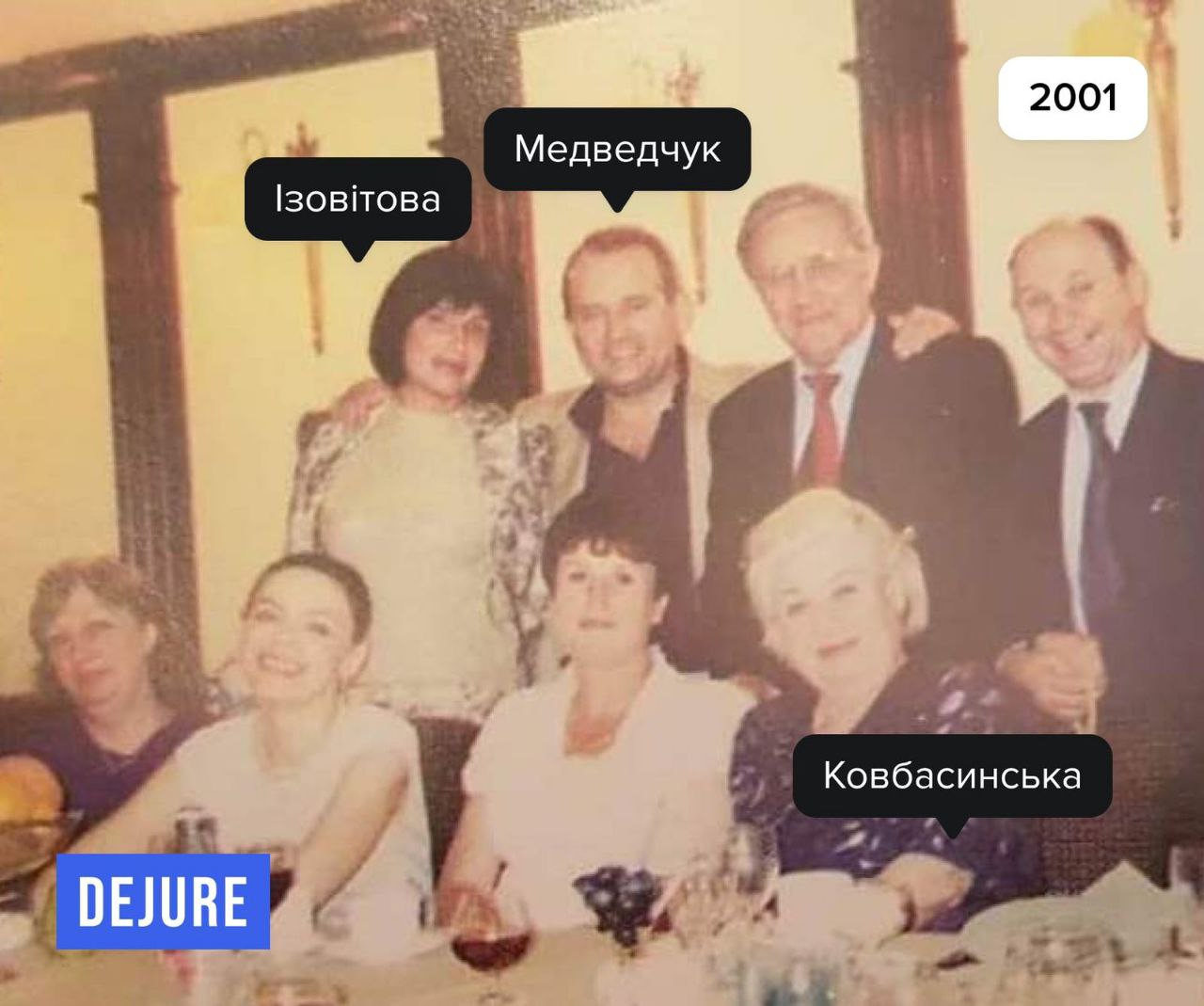Fish Rots from the Head: What Is Wrong with Ukrainian Bar and How to Fix It

From the Editor: Can lawyers in Ukraine stop being postmen delivering envelopes from clients to investigators and judges? With this text, we seek to open a discussion on what kind of reform the legal profession needs, what or who is preventing it, and what tools, including legislative ones, should be used to ensure that the legal profession is associated only with an impeccable professional and ethical reputation.
The Ukrainian bar has been plagued by problems for years. This is the only side of the justice triangle that has not been reformed at all since the Revolution of Dignity and without which the rule of law in Ukraine will not be achieved. Only lawyers have the exclusive right to representation in court, which significantly increases their influence. In addition, the Congress of Advocates of Ukraine appoints two members of the High Council of Justice (HCJ, the body that decides to appoint or dismiss judges), and therefore has a significant impact on the success of the country's key judicial reform. Earlier, the bar community appointed Viktor Medvedchuk, accused of treason, and the current head of the bar, Lidiia Izovitova, to the HCJ (formerly the High Council of Justice) under its quota, and, contrary to the Constitution, appointed lawyer Oleksii Malovatskyi and one of the defendants in the Vovk tapes case, Pavlo Hrechkivskyi, for the second consecutive term.
International partners, including the ambassadors of the G7 countries, have repeatedly spoken about the urgency of changes in the legal profession. The European Commission has also clearly identified the shortcomings of the sector and emphasized the need for reform: “… the self-governance system and resource management of the Bar should be improved and made more transparent and accountable. The qualification and disciplinary procedures for lawyers require significant improvements in law and in practice. The process for admission to the profession remains weak and prone to corruption risks, which undermines the credibility and independence of the profession.”
Both attorneys and the public need a broad discussion about the challenges of the legal profession and a discussion of what kind of reform it should undergo to make it professional, independent, and uncorrupted. What is it like now and how to get out of this vicious circle, we will discuss below.
Monopoly on the Bar: How Izovitova's Group Concentrated Power in Its Hands
In many Western democracies, the existence of a single bar association, with membership mandatory for all, is the norm. However, the introduction of this model in Ukraine, which was promoted by Yanukovych's associate Andrii Portnov, had its own significant peculiarities and had very serious consequences. According to the law on the Bar, the head of the Bar Council of Ukraine (BCU) is also the head of the Ukrainian National Bar Association (UNBA). This has led to the fact that these two institutions, as well as the High Qualification and Disciplinary Commission of the Bar (HQDC), have effectively “merged into one,” and all power has been concentrated in the hands of Lidiia Izovitova's group, a longtime associate of Medvedchuk, since 2012.
The Constitutional Court is currently considering whether the UNBA's monopoly is unconstitutional. Whatever its decision, it is clear that the reform of the bar is impossible without giving lawyers the right to choose which association they can be members of. The existence of many associations will ensure healthy competition between them for each lawyer by providing quality services (internships, relevant training courses), and protecting their professional rights and interests. And the lack of choice is the Russian method used by the leadership of the Ukrainian bar today.
The Russian trail
From the first years of Ukraine's independence, Putin's godfather Viktor Medvedchuk has been building a system of lawyers subordinated to him. In 1990-2006, he was president of the Ukrainian Bar Association, and in 2001, Lidiia Izovitova became his deputy. In 2011, Medvedchuk made sure that Izovitova was elected head of the Association, which she headed until 2016. And in 2012, when a new law on the Bar was passed under Portnov's watchful eye, Izovitova was also appointed head of the Bar Council of Ukraine and the National Bar Association. At that time, two competing constituent congresses of lawyers were held in Kyiv. The one that elected Izovitova was recognized as legitimate. The decision was made by the notorious Kyiv District Administrative Court (KDAC). Thus, the power over the Ukrainian bar was formally transferred and concentrated in the hands of one person.
The bar leadership demonstrated its pro-Russian and anti-democratic position during the Revolution of Dignity: it supported the “dictatorial” laws of January 16 and did not respond to numerous human rights violations, including the beating of lawyers.
After the annexation of Crimea, Izovitova was photographed and contacted by the president of the Russian Bar Association, Yurii Pylypenko, who supports Russia's invasion of Ukraine. The National Bar Association of Ukraine has never condemned the actions of the lawyers who collaborated with Russians. The latter, in the style of Medvedchuk, participate in the torture of Ukrainian activists and prisoners and thus legitimize the actions of the occupation authorities. Moreover, with the tacit consent of the leaders of the Ukrainian bar, these individuals are still listed in the register of Ukrainian lawyers. Among them, for example, are the heads of the occupation Crimean Bar Olena Kanchy and Anatolii Zhernovyi. Therefore, if, say, elections to the Ukrainian bar are held tomorrow, they and thousands of other collaborators will be able to participate in them.

Interestingly, Izovitova's term as head of the BCU and the Bar Association expired in November 2022. By law, she can no longer run for office, so she is blocking new elections under the guise of war. What is this if not a usurpation of power?
Steeped in corruption
The bar has no mechanisms for checking the integrity of its members, so corruption is rampant in the system. There is a category of “handymen lawyers,” who know who to bribe and how much to pay to get the case resolved in the client's favor. And even when a lawyer is caught taking a bribe, they are in no hurry to bring him or her to disciplinary responsibility. Instead, the head of the HQCJ, Vilkov calls proceedings against corrupt lawyers as persecution controlled by the National Agency for the Prevention of Corruption (NAPC). Moreover, Vilkov and other members of the bar self-government actively oppose the verification of their income, calling it a waste of time and money.
Corruption schemes are also common during the qualifying examination for the bar. For instance, in the survey conducted in 2018, 47% of the attorneys who participated in it said that they were aware of the desire to pay for obtaining a certificate, and almost 38% were aware of identical "offers" from the exam organizers. It is doubtful that the situation has changed for the better. There is even a practice when candidates go to another region to take the qualifying exam, where it is easier and cheaper to negotiate, or, conversely, where they can take it without a bribe.
A good illustration of the ineffective filters for admission to the legal profession is the case of Illia Kiva and a group of former military prosecutors led by their former boss Anatolii Matios who received their bar exam certificates. The latter received their lawyer's certificates “in bulk” in Volyn, where they all indicated their registration address in a grocery store building. In view of this, we need a transparent, unified, standardized approach to obtaining the status of a lawyer that will actually check the professional competence and integrity of candidates and be broadcast online.
Disciplinary proceedings as a means of censorship of lawyers
The bar leadership has repeatedly used disciplinary proceedings as a way to put pressure on independent lawyers. A complaint is filed against an advocate who publicly reveals problems with the system, rebukes Izovitova and Co., is found guilty of violating the lawyer's oath or ethics, and is deprived of or suspended from the lawyer's certificate, without which the practice of law is impossible. Public "criticism of the activities, decisions, procedure of formation, members" of the bar bodies is also officially defined as a violation of legal ethics, which may result in revocation of the license. In fact, this is how censorship was introduced in the bar.
This algorithm was used to disbar Andrii Vyshnevskyi, who called the state of the bar deplorable, and Valeriia Kolomiets for allegedly "destructive management" and “negative attitude towards the bar.” Both were persecuted not for their legal activities, but for their position when they were responsible for the free legal aid (FLA) system at the Ministry of Justice. According to Kolomiyets, she opposed the UNBA's direct access to UAH 800 million from the state budget for free legal aid.
Izovitova and Co. also launch disciplinary action against the lawyers who report on their inaction in relation to lawyers collaborating with pro-Russian separatists. At the same time, the disciplinary authorities refuse to consider complaints against the latter, in particular, those who are included in the register of "DPR lawyers."
There is chaos in the work of the bar disciplinary bodies: they make opposite decisions in similar cases. This shows that the disciplinary bodies, and especially the HQCJ, whose decisions should be the standard in these matters, need to be rebooted. It is important that the renewed body includes not only lawyers who have been vetted by an independent competition commission for integrity, but also representatives of other legal professions, as well as members of the public, as is the case in many European countries, including the UK. The provisions of the law on disciplinary procedures also have numerous shortcomings that need to be addressed.
Not professional development, but a formality for earning points
Continuing professional development is one of the international principles of lawyers' activities. However, this important principle has been reduced to a formality by the bar leadership - lectures are attended only to earn the points necessary to maintain the status of a lawyer. This is because the Bar Council of Ukraine has effectively introduced a monopoly on training only at the Higher School of Advocacy, created by the UNBA. It is the only provider of educational services that does not require accreditation. The requirements for other educational institutions are such that they make their accreditation and any competition impossible: the annual fee in 2024 is more than UAH 300,000 (the UNBA Head has the right to change it at his discretion), the list of documents for accreditation is long, and after accreditation, each seminar still needs to be approved.
Izovitova Group's financial appetites
The European Commission has emphasized that “the management of the bar's resources should be improved and made more transparent and accountable.” The bar bodies manage millions. Only about 140 million UAH is the sum of annual contributions of lawyers (3028 UAH per lawyer, and all practitioners more than 46 thousand people), provided that all lawyers have paid them. There are also fees for internships, qualifying exams, filing complaints, and mandatory paid courses at the bar school.
However, the financial reports of the bar for previous years lack proper detail and have not been verified by an independent auditor. There is no transparent budgeting process in place, and it is unclear what millions are spent on. It seems that the financial appetites of Izovitova's group are not limited to this. Now the UNBA is trying to get direct access to hundreds of millions of hryvnias from the state budget for free legal aid, so they have launched an aggressive information campaign to discredit the current system of free legal aid. Izovitova's deputy Valentyn Hvozdiy hints at the lack of transparency of state spending and openly openly says that all funds should be transferred to a fund managed by lawyers. Perhaps the UNBA itself should publish audited financial reports for 2022 and 2023?
What will happen next?
New elections to the bar under the current law will not bring in new faces. There are many loopholes in the current legislation that will allow Izovitova's group to select the “right” delegates from the regions and ensure that they choose the “right” people. After all, this has already happened — the 2012 and 2017 bar congresses.
First, we need a law that will completely reboot the system. The new rules of the game should create effective filters to ensure that only honest lawyers get into the bar self-government, especially at the national level.
The Bar Association is trying to convince us that the bar should be self-governing and independent of state interference. Judges used to sing a similar song about their self-government. However, the bitter experience of self-governance of judges and lawyers without effective safeguards and public control leads to corruption and mutual responsibility. A reformed and cleansed bar is an important piece of the puzzle that will ensure both the rule of law in Ukraine and its further European integration.
Read this article in Ukrainian and russian.
Please select it with the mouse and press Ctrl+Enter or Submit a bug














.jpg)
.jpg)
 Login with Google
Login with Google